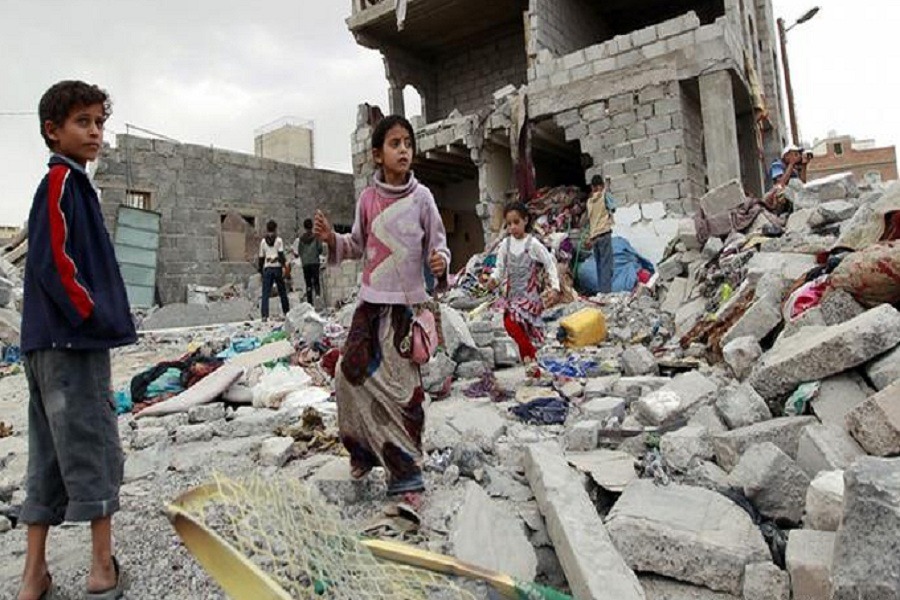It was almost five and a half years ago when Saudi and the UAE officials resorted to military means and launched a large-scale air, ground and sea military offensive after the scandalous defeats they suffered in the Yemeni political scene and failed to change the political situation inside the country in their own favour. The Riyadh and Abu Dhabi authorities resorted to a military solution on the one hand as part of efforts to prevent the Islamic Awakening from spreading to Yemen and on the other hand to prevent the establishment of a popular democracy in their southern neighbour.
Therefore, this war against Yemen was completely different from other wars in the West Asian region; because the Yemeni side not only did not intend to go to war with Saudi Arabia but also due to the developments stemming from the Islamic Awakening lacked any military readiness to confront the invading forces led by Saudi Arabia.
In fact, this made the human dimension of this war and its very negative consequences against the Yemeni people more prominent than other contemporary wars; because this military invasion did not target the Yemeni military areas and the military itself, but the aggressors by putting all kinds of military pressure on the Yemeni people tried to prevent them from democracy and anti-hegemonic movements. In other words, the Yemeni war was a military war under the command of reactionary dictators in the region against the people who, on the one hand, had risen up against the dictatorial regime in Yemen and opposed any intervention by Saudi Arabia and other Western agents in their country on the other hand.
The Saudi-UAE war record lists three major international crimes, each of which is highly inhumane; the first is crimes against humanity, the second is ethnic cleansing, and the third is genocide, each of which reflects some of the dimensions of Saudi crimes in the war against Yemen. During the five-and-a-half-year imposed war, Riyadh and Abu Dhabi attacked most of Yemen’s residential areas and cities. Hundreds of hospitals, mosques as well as thousands of schools and educational centres and many other public institutions were destroyed in these criminal attacks.
According to the observers, this amount of destruction has never been seen in any of the contemporary wars. Meanwhile, Saudi Arabia and the UAE, with the help and support of Western armies, imposed the most severe blockades on Yemen in the recent years and increased the scope of sanctions to the point that the Yemeni people faced the most severe famines and shortages in the field of medicine and food.
The scope of such crimes was so wide that the United Nations, despite pressure from Western countries, was finally forced to expose some of the dimensions of the humanitarian catastrophe in Yemen and point out the crimes committed against the Yemeni people in this regard. In fact, the phrase “crime against humanity” as one of the major crimes of Saudi Arabia and the UAE in Yemen was not and is not a propaganda title based on war propaganda, but it refers to the very bitter facts that Riyadh committed in its imposed war against the Yemeni people. In addition, it is worth mentioning the case of those wounded in the war and the process of their treatment, which Saudi Arabia and the UAE never allowed to provide treatment for tens of thousands of wounded, most of whom were Yemeni children and women.
Even the International Committee of the Red Cross was not allowed to be present in Yemen and help the great number of injured. Of course, what was done by Saudi Arabia and the UAE in the form of these great crimes and these international crimes against the Yemeni people should be considered within the context of colonial and Zionist policies that have tried to realize their targets by fanning the flames of the Yemeni war which is a proxy or advocacy war. In this area, Saudi Arabia and the UAE acted as gendarmes in the service of the West and the Zionist regime, demanding that their strategic targets in the Red Sea and the very strategic Bab al-Mandeb Strait be realized.
Now, more than ever, it is clear that not only have the regimes of these two Arab countries not achieved any result out of the large-scale military invasion of Yemen but astonishingly faced with a war-torn country, which now by resorting to the missile and drone capabilities, has challenged the entire military capabilities of Saudi Arabia and the UAE. Despite enduring tens of thousands of casualties and hundreds of thousands of wounded, it has shown the most unparalleled success in defending the Yemeni people and its territory, but however, compensating for the crimes committed by the Saudi coalition in Yemen, it takes years and they have to take responsibility for the consequences.










0 Comments